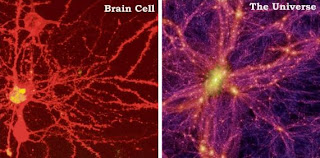Agency Panic
-the panic of attributing consciousness to all kinds of
systems, and about the difficulty of locating control at any one level of
existence – the difficulty, in other words, in deciding what a person is. (p34, Tabbi referencing Timothy Melley’s
agency panic of humanist backlash in contemporary U.S.
We are at a loss to grasp how discursive social structures
might impinge on individuals without depriving them of all capacity for
autonomous action.
Knowledge, Fact and
Contingency
Knowledge is the holding, or accumulation of facts, which in
themselves exist, or are constructed anthropically, as an
extension/precipitating of agreed-upon units. A fact is a product of prior
facts, irreducible, infinite, like fractals. And they require a structure, held
up by the beliefs of a society. And so facts are contingent upon the facts that
make them up (in infinite recursion) and upon the subjects, the participants,
the observers that agree upon their validity, and cement their sturdiness for
further knowledge.
Programming vs
Selection
Evolution is a process of selection rather than programming
and thus the brain, and consciousness as well.
Reading Cognitive
Fiction
-Can be thought of as interpreting/criticizing texts either
analytically or psychologically
-Can stimulate a latent recognition
-Can force the question of how to represent thought and
construct subjectivity
One cannot map consciousness onto cognition, or derive
communication from hardware. One can only fluctuate between incompatible
theories, and accommodate linear writing to multi linear thought, the conscious
mind to the unreflective medial ecology. (p120)
The Imminent Mind
The imminent mind is not only in the body. It is imminent
also in pathways and messages outside the body; and there is a larger Mind of
which the individual mind is only a subsystem.
-Gregory Bateson,
Steps to an Ecology of Mind, p460
-cited in Wolfe, “In
Search of Posthumanist Theory”, p50
-found in Tabbi,
Cognitive Fictions, p34-35
Notes:
Microsoft’s Windows are opaque.


No comments:
Post a Comment